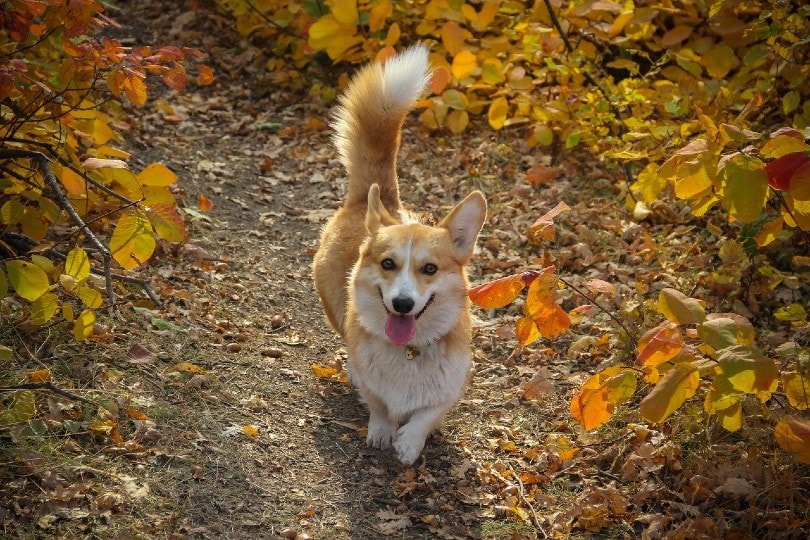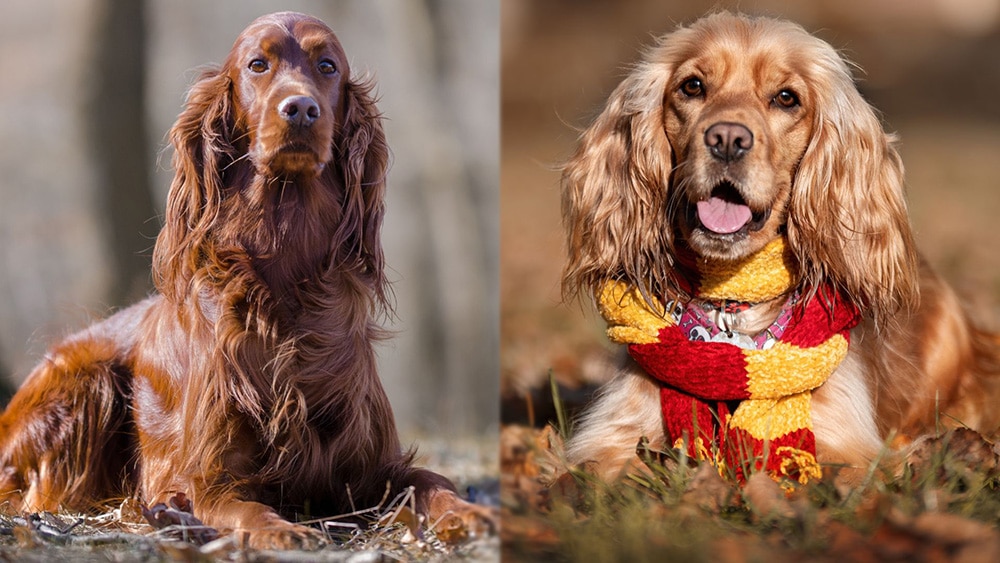How Long Will My Dog’s Diarrhea Last After Changing Food? Vet-Approved Facts
By Jessica Kim
Updated on
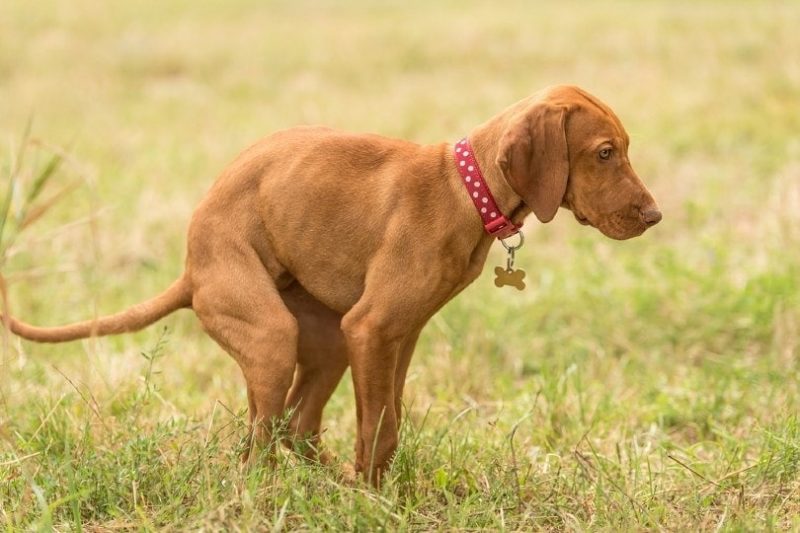
Changing out your dog’s food can be a tricky process. Since puppies and dogs have sensitive stomachs, introducing drastic or sudden significant changes to their diets can lead to an upset stomach and diarrhea. Diarrhea caused by sudden food changes typically last 1-3 days.1
Dogs experiencing diarrhea while switching to new dog food isn’t uncommon. Fortunately, there are specific things you can do to help your dog through this period of discomfort.
What Causes Diarrhea While Changing Dog Food?
There are a couple of reasons why dogs experience diarrhea while changing to new dog food. First, dogs have stomachs that are a lot more sensitive than humans. Since they tend to eat the same food daily, introducing too much new food too quickly can shock their digestive systems.
Diarrhea can also be caused by food sensitivities or allergies. Like humans, some dogs can develop allergies and have difficulty digesting certain foods. Contrary to popular belief, many common allergic reactions are caused by proteins. The following are typical food allergens2 for dogs:
- Beef
- Chicken
- Dairy
- Eggs
- Soy
Dogs can also have wheat allergies, but they’re rarer than meat allergies. Currently, the best way to address food allergies and sensitivities is to avoid foods that trigger reactions.
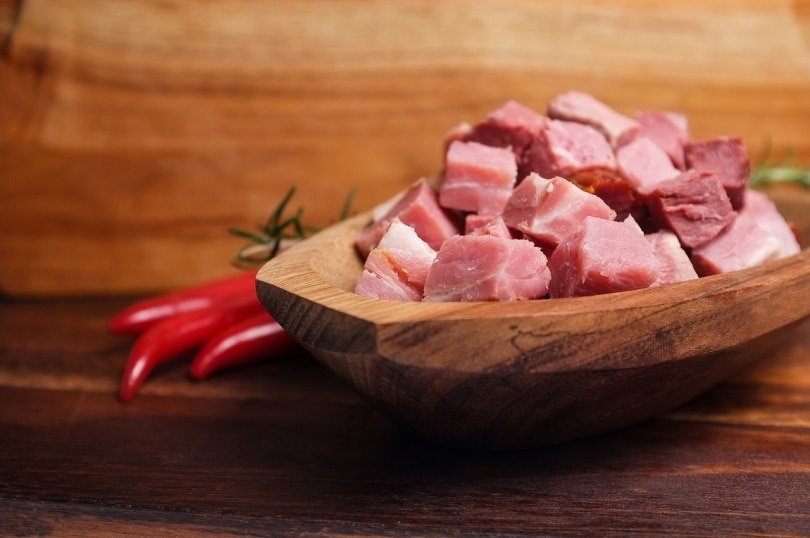
What to Do If Your Dog Experiences Diarrhea
Watching your dog experience an upset stomach can be hard to watch. Fortunately, there are some things that you can do to help your dog during this difficult time.
First, withholding food for 12-24 hours can help settle your dog’s gastrointestinal tract. Most healthy adult dogs can safely fast from food. However, it may not be healthy for puppies or older dogs to refrain from eating, so make sure to check with your veterinarian before temporarily withholding food from your dog.
Since diarrhea can lead to dehydration, make sure to leave small amounts of water in a bowl that your dog can always access. Your vet may also recommend you give your dog electrolytes to help your dog retain water and stay hydrated.
After the fasting period ends, you can slowly introduce bland food to your dog. Make sure to keep the meals simple and use foods that are easy to digest. Here are some common foods that are gentle on stomachs:
- Plain boiled chicken (assuming no chicken allergy)
- Plain white rice
- Pumpkin
At your veterinarian’s discretion, you may also be able to feed your dog canned food with a sensitive stomach formula. If diarrhea doesn’t go away after a few days, contact your veterinarian. You’ll also want to speak with your veterinarian if your dog develops symptoms other than diarrhea, such as dehydration or irritated or inflamed skin.
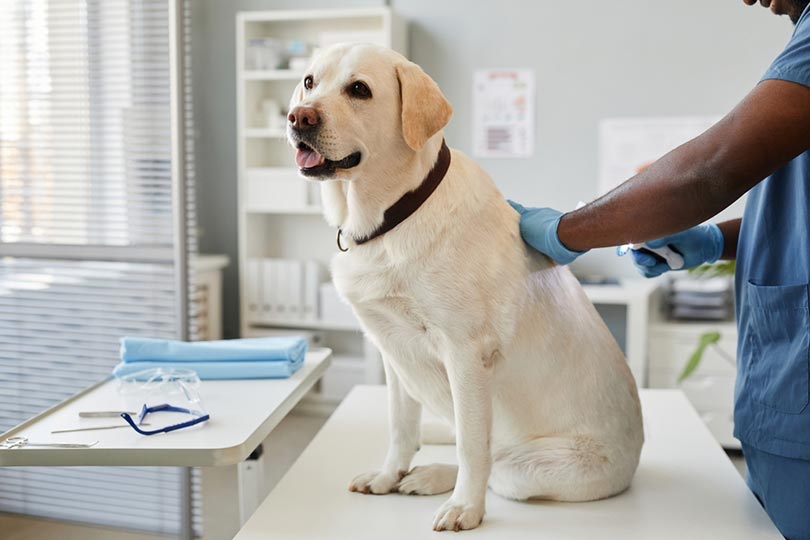
How to Safely Change Your Dog’s Food
Before you change your dog’s food, make sure to check the new food’s ingredient list. Look for any ingredients that may cause allergic reactions. Once you find food that’s safe for your dog to eat, slowly transition them to the new food.
Schedule for Changing Dog Food
Typically, you’ll want to spend at least one week changing your dog’s diet. If your dog tends to have a sensitive stomach, you’ll want to lengthen the amount of time it takes to fully change to new food. Here’s a commonly recommended schedule to follow for switching dog food:
- Days 1-2: 25% new food and 75% old food
- Days 3-4: 50% new food and 50% old food
- Days 5-6: 75% new food and 25% old food
- Day 7: 100% new food
Conclusion
Changing your dog’s food may cause diarrhea. Some of the best ways to help your dog are to withhold food and feed it a bland diet temporarily. If diarrhea persists for more than 3 days, make sure to contact your veterinarian for further instructions.
Featured Image Credit: SasaStock, Shutterstock




